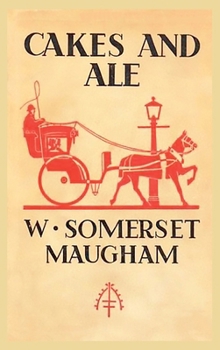Cakes and Ale
Select Format
Select Condition 
Book Overview
Cake and Ale is a satirical novel of manners and a bildungsroman, infused with autobiographical reflection and literary criticism in narrative form. It belongs to that branch of early 20th-century English fiction that examines the literary establishment itself-its pretensions, moral codes, and hypocrisies. Maugham uses the device of a writer-narrator, William Ashenden, to blur the boundary between fiction and memoir, creating a layered narrative that moves between social satire, character study, and philosophical reflection.
The story is told in the first person by Ashenden, who serves as both participant and commentator. His voice is urbane, ironic, and reflective-often sympathetic yet detached, characteristic of Maugham's narrative tone.
The structure alternates between two temporal layers:
The present, in which Alroy Kear tries to produce a sanitized biography of Driffield; and
The past, which Ashenden recalls-his youthful encounters with Ted and Rosie Driffield.
This double time frame allows Maugham to contrast memory and myth, truth and fabrication, and to explore how a writer's life is mythologized after death.
Related Subjects
Arts, Music & Photography Classics Contemporary Fiction Literary Literature & Fiction





